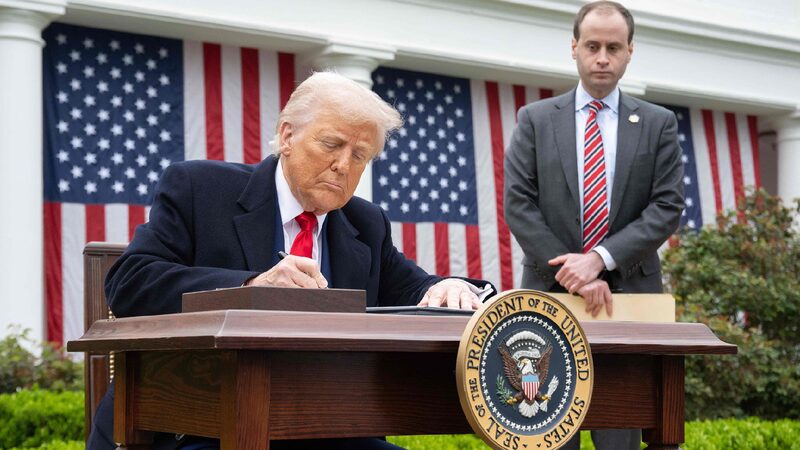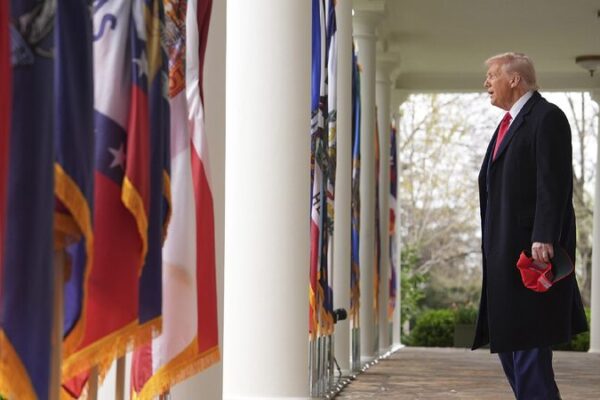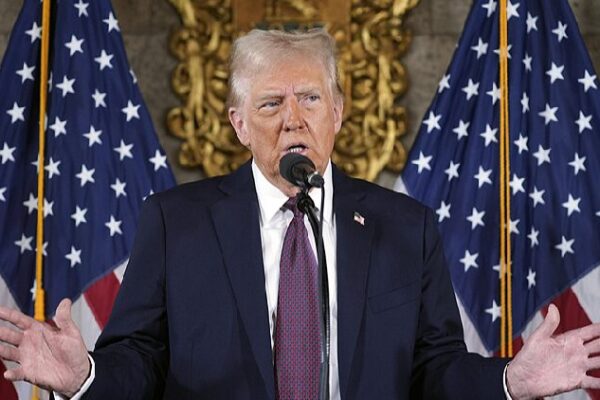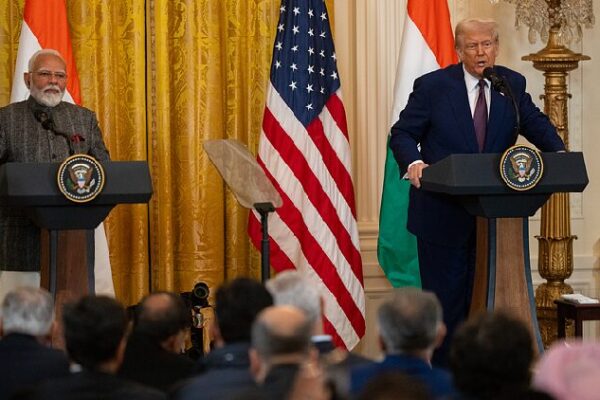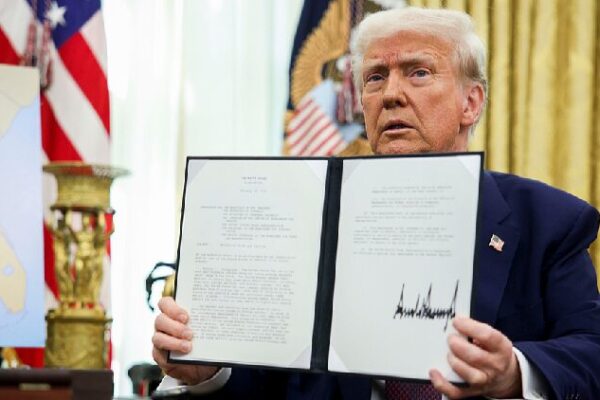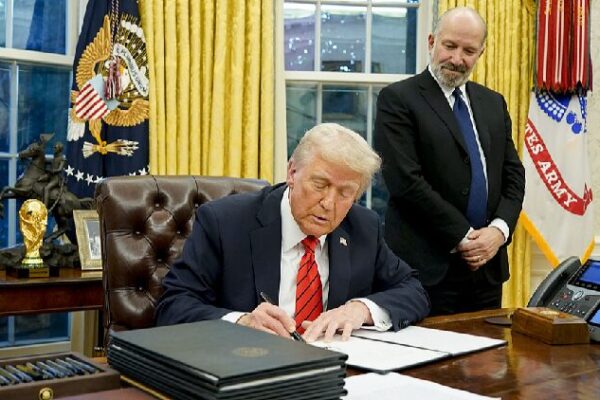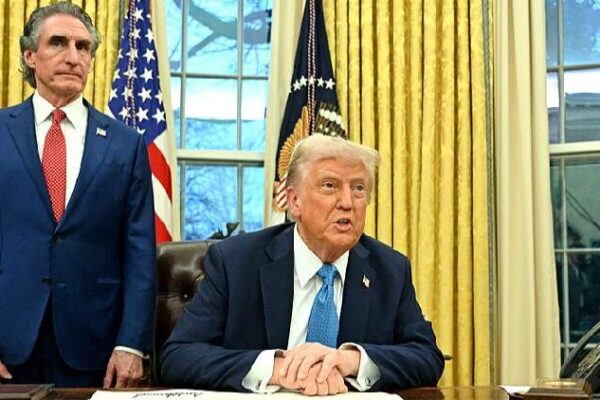On Wednesday, U.S. President Donald Trump signed an executive order imposing “reciprocal tariffs” on trading partners, calling it a “declaration of economic independence” aimed at reshaping U.S. manufacturing and promoting economic revival. However, experts caution that this move might cause more harm than good for the United States.
The new tariffs vary by country and region, with China facing a 34 percent tariff, the European Union 20 percent, Vietnam 46 percent, Japan 24 percent, India 26 percent, South Korea 25 percent, Thailand 36 percent, Switzerland 31 percent, Indonesia 32 percent, Malaysia 24 percent, and Cambodia 49 percent.
Cui Fan, a professor at the University of International Business and Economics, told CGTN that imposing these tariffs will inevitably raise domestic prices in the United States, increase the burden on citizens, and escalate costs for many companies. He added that Trump’s belief in protectionist tariffs reminiscent of over a century ago is outdated and impractical.
Despite the imposition of 25 percent tariffs on steel imports in 2018, productivity in the U.S. steel sector, measured by output per hour, has declined by 32 percent over eight years. Research from the Federal Reserve Bank of New York found that tariffs have reduced U.S. economic well-being by 3 percent, harming businesses and consumers alike. Even in 2023, employment levels in the steel industry remained below their 2018 levels.
Xu Feibiao, director of the Center for BRICS and G20 Studies at China Institutes of Contemporary International Relations, stated that the tariff policy means the United States is moving further down the path of protectionism, which will be difficult to reverse. He noted that U.S. allies may respond by increasing bilateral and multilateral cooperation without the United States and building “strategic autonomy” to rebalance relations.
Xu emphasized that many developing countries will face a “double shock” from these tariffs. Lacking the economic strength and policy tools of developed nations, countries highly dependent on the United States, such as Mexico and Colombia, may experience sharp declines in economic growth, increased unemployment, and rising debt and fiscal deficits.
He also warned of the “secondary impact” on key countries. Developing nations in Asia, Africa, and Latin America that are closely connected to the Chinese mainland and EU countries through trade and industrial supply chains will be affected.
Regarding whether Trump’s tariff policy can continue amid rising global opposition, Xu said the move unilaterally tears up international agreements and violates international law, which is bound to trigger an international backlash. “If all countries jointly fight back against the unilateral actions of the United States, Trump will find it difficult to achieve his intended goals,” he said.
Xu concluded that if Trump’s policies do not bring economic growth, improved employment, and increased income, domestic opposition will rise. Notably, in the more than two months since Trump took office, the U.S. has experienced economic slowdown, a falling stock market, increased unemployment, and a declining approval rating.
Read more: ‘America’s trade policies back to 19th century’: Media reacts to Trump’s tariffs
Reference(s):
Experts: U.S. 'will shoot itself in the foot' due to tariff obsession
cgtn.com
